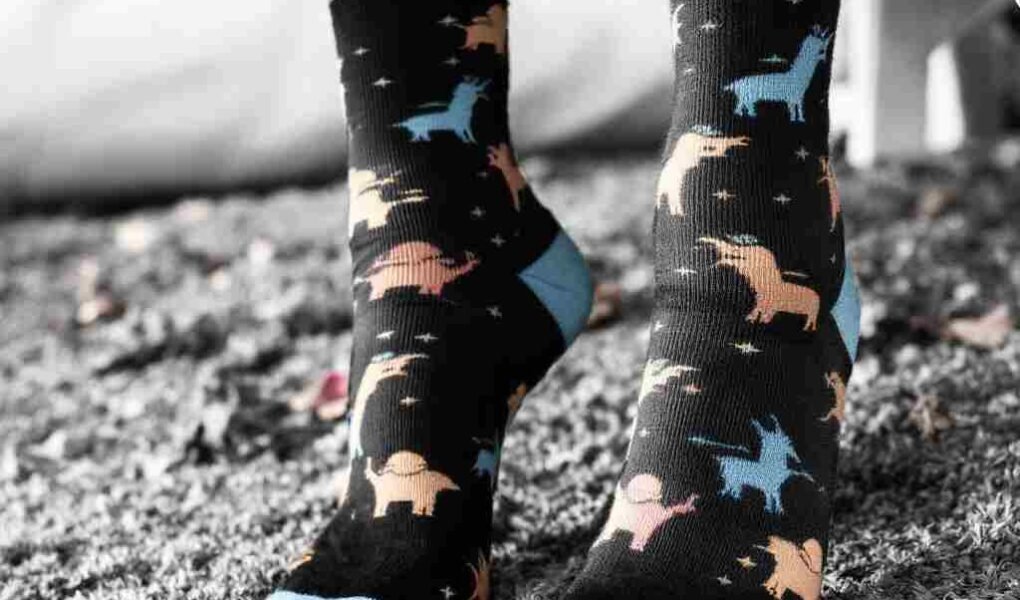Apolla Socks, a brand that has captured the hearts and feet of many, specializes in compression socks tailored for dancers and everyday users. Founded by the dynamic duo, Kaycee Jones and Brianne Zborowski, these socks offer more than just comfort; they provide essential support for active lifestyles. Since their appearance on Shark Tank, the brand has seen significant growth, making it essential to explore their net worth and the factors contributing to their success.
Understanding Apolla Socks’ net worth is vital not only for potential investors but also for fans of the product and the broader entrepreneurial community. The journey from a budding startup to a recognized name in the sock industry reflects the challenges and triumphs of entrepreneurship.
Background of Apolla Socks
Founders’ Journey
Kaycee Jones and Brianne Zborowski are not just entrepreneurs; they are passionate advocates for the dance community. Both founders have backgrounds in dance, which significantly influenced their decision to create Apolla Socks. Their journey began with a shared frustration over the lack of supportive, stylish, and functional socks available for dancers.
The inspiration behind Apolla Socks stemmed from their desire to provide relief and comfort to dancers who often face foot pain during performances and rehearsals. Their understanding of the unique needs of dancers shaped the vision for the brand.
Product Development
Apolla Socks stand out in a crowded market due to their innovative design and functionality. The socks are crafted with a blend of materials that provide compression, enhancing blood circulation and reducing fatigue.
Unique features of Apolla Socks include:
- Moisture-wicking properties that keep feet dry.
- Breathable fabric that ensures comfort during extended wear.
- Stylish designs that appeal to both dancers and casual users.
These features collectively differentiate Apolla Socks from competitors, making them a preferred choice among users.
Initial Market Response
Before appearing on Shark Tank, Apolla Socks garnered positive attention. Early sales figures indicated a growing interest in their product, and customer feedback was overwhelmingly positive. Many users praised the socks for their comfort and effectiveness, which helped establish a loyal customer base even before the national exposure from the show.
The Shark Tank Experience
Pitch Overview
In season 13, episode 2 of Shark Tank, Kaycee and Brianne made their pitch to the sharks, showcasing their innovative socks. They asked for an investment of $200,000 in exchange for 10% equity in their company.
Their presentation highlighted not only the product’s quality but also their passion and commitment to the dance community. This engaging pitch was crucial in capturing the interest of the sharks.
The Deal with Lori Greiner
After some negotiation, the founders struck a deal with Lori Greiner. She offered them $200,000 for 20% equity, providing invaluable expertise and exposure. Lori’s involvement was a game changer, significantly boosting the brand’s visibility and credibility.
The negotiation process illustrated the sharks’ keen interest in the potential of Apolla Socks, validating the founders’ hard work and dedication.
Immediate Aftermath
Following the airing of their episode, Apolla Socks experienced a dramatic sales spike. The increased media coverage and newfound popularity led to a surge in consumer interest. This immediate aftermath showcased the power of Shark Tank in transforming small businesses into household names.
Financial Insights
Current Net Worth
As of now, Apolla Socks is estimated to have a net worth of $1.2 million. This figure reflects their growth trajectory post-Shark Tank and the brand’s increasing recognition in the market.
Revenue Growth
Since its inception, Apolla Socks has reported total sales of approximately $4.1 million. This impressive figure highlights the brand’s successful penetration into the market.
The breakdown of sales channels reveals:
- Direct-to-consumer sales: Approximately 70%
- Wholesale sales: 30%
This diverse revenue stream allows for sustainability and growth in different market segments.
Profit Margins and Costs
Understanding profit margins is crucial for assessing the brand’s financial health. Apolla Socks employs a pricing strategy that balances quality and affordability. Their production costs are kept in check through efficient sourcing and manufacturing processes.
Additionally, customer loyalty metrics indicate a low return rate, demonstrating satisfaction and repeat business. This loyal customer base is a testament to the effectiveness of their products.
Brand Expansion and Marketing Strategies
New Product Lines
Apolla Socks has continued to innovate by introducing new product lines, including collaborations with renowned entities like the Boston Ballet. This partnership not only enhances their brand image but also opens doors to new customer segments.
Target Market Evolution
Initially focused on dancers, Apolla Socks has shifted its marketing strategies to cater to a broader audience, including outdoor enthusiasts and fitness lovers. This evolution in target market reflects the brand’s adaptability and commitment to growth.
Social Media Engagement
The role of social media in building customer relationships cannot be overstated. Apolla Socks actively engages with their audience through live Q&A sessions, customer testimonials, and interactive posts. This engagement fosters a sense of community and encourages brand loyalty.
Challenges and Future Prospects
Challenges Faced
Like many businesses, Apolla Socks faced significant challenges during the COVID-19 pandemic. The impact on sales and operations was profound, as many consumers shifted their spending habits and priorities.
Future Growth Potential
Despite these challenges, the future looks promising for Apolla Socks. With current trends indicating a growing interest in health and wellness, the brand is well-positioned for continued revenue growth. By expanding their product offerings and engaging with a wider audience, they can capitalize on emerging market opportunities.
For more information read our net worth category.







